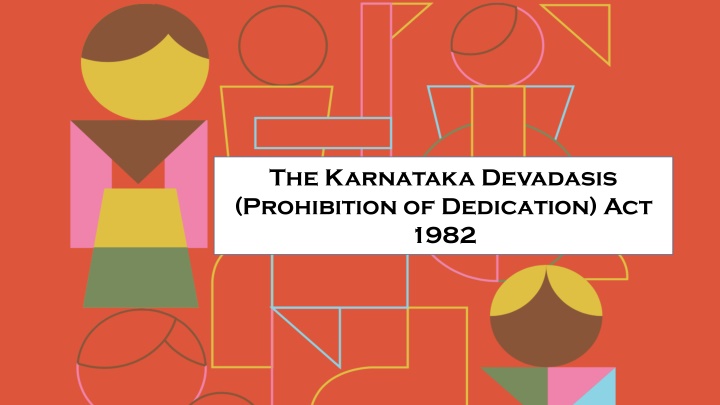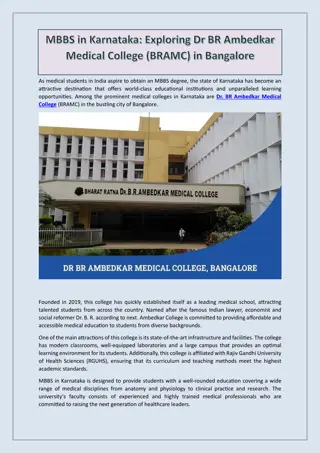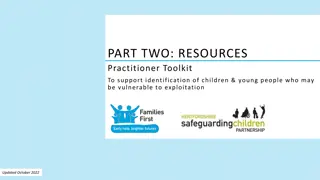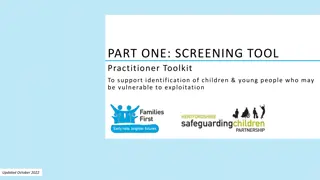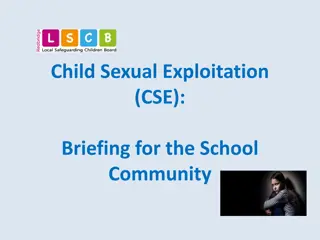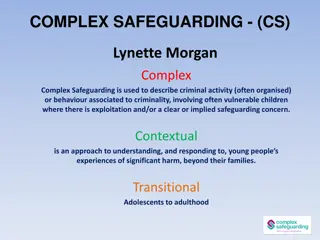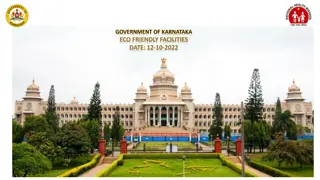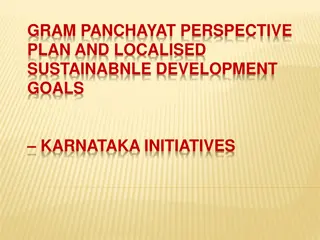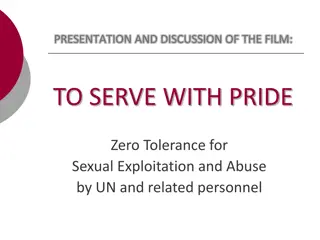The Karnataka Devadasis (Prohibition of Dedication) Act 1982: Addressing Exploitation Through Legal Measures
The Karnataka Devadasis (Prohibition of Dedication) Act of 1982 prohibits the deplorable practice of dedicating young girls from marginalized communities to temple prostitution. The Act criminalizes dedication ceremonies, with strict punishments for offenders, and emphasizes rescue, care, and rehabilitation measures for victims. Recent amendments have empowered officials to enforce the law effectively, marking a crucial step towards eradicating this harmful tradition.
Download Presentation

Please find below an Image/Link to download the presentation.
The content on the website is provided AS IS for your information and personal use only. It may not be sold, licensed, or shared on other websites without obtaining consent from the author.If you encounter any issues during the download, it is possible that the publisher has removed the file from their server.
You are allowed to download the files provided on this website for personal or commercial use, subject to the condition that they are used lawfully. All files are the property of their respective owners.
The content on the website is provided AS IS for your information and personal use only. It may not be sold, licensed, or shared on other websites without obtaining consent from the author.
E N D
Presentation Transcript
The Karnataka Devadasis (Prohibition of Dedication) Act 1982
The term devadasi translates into slave of the god . Traditionally, it involved the offering of young girls from Scheduled Caste and Scheduled Tribe communities to Hindu temples to perform as dancers to appease Gods. Its predominantly practiced in the southern states of India. Young girls who are yet to attain puberty are offered to temples through an act of marriage to the local deity conducted by the local priest.
The Devadasi System in its present form differs from its historical practice. Devadasi girls are forced into sex work. Devadasis are expected to have sexual relationships with men who could support them and their families. Religion, caste discrimination, patriarchy and poverty are the main causes for the Devadasi system to still flourish.
The Act was adopted by the State Legislature in 1982 and was notified by the Government through its Gazette in 1984. The Act declares the practice of dedication of any woman as a Devadasi unlawful and hence prohibited
The Act criminalizes those involved in dedicating the girl. A person who performs, permits, takes part in or abets the performance of any ceremony or act for dedication may be punished with imprisonment of three years and a fine up to two thousand rupees
The Act has made involvement of guardians, family members and relatives as a more serious offence and prescribed higher punishment of a minimum of two years imprisonment along with two thousand rupees fine, and a maximum of five years imprisonment along with five thousand rupees fine
2010 amendments Devadasi prohibition officer district and executive magistrates have the powers to issue prohibitory injunctions against dedication Take suo moto cognizance take appropriate actions for the enforcement of the law Provides for the rescue, care, protection, welfare and rehabilitation measures Provides that the offences under the act are cognizable and non-bailable
The 2010 amendment empowers the district magistrate or the executive magistrate to issue prohibitory injunctions either following complaints or on a suo moto basis, against any person to stop the practice of dedication
The Act provides for the appointment of a Devadasi Dedication Prohibition Officer under Section 3D of the Act, who is mandated to conduct awareness and sensitization campaigns along with the enforcement of the provisions of the act
On rescue and rehabilitation, Section 3B directs the State Government to take all necessary steps to rehabilitate the women rescued from dedication. provides for counselling and awareness programmes and engages the rescued women in income generating activities to economically empower them to become self-sufficient
The Act also mandates rules to be framed to provide for the custody, protection, welfare and rehabilitation of the Devadasis. However, the State Government is yet to draft Rules, despite three decades of the Act being in existence
In addition to the law, there are welfare schemes formulated by the government. Under the Devadasi Rehabilitation Programme the government provides for counseling services, involve the Devadasi women in income generating activities, provide shelter homes, and subsidy and loans through banks
The Devadasi prevention laws are plagued by weak enforcement In 2015, the Central Government issued an advisory to all State Governments for implementation of DEVADASI PROHIBITION legislations
VISHAL JEET v. UNION OF INDIA The Petitioner, in this case, challenged the inefficiency of the police and sought for directions for implementation of the Devadasi legislations and to direct the CBI to institute an enquiry against those police officers under whose jurisdiction Devadasi traditions are nourishing, and to take necessary actions against such of officers
GAURAV JAIN V. UNION OF INDIA This PIL pertained to the rights of the children of Devadasi women and minor girls. The Court, while investigating the matter, directed a Committee to submit a report on the condition of such children and the means of improving their livelihood.
S.L S.L. FOUNDATION V. UNION OF . FOUNDATION V. UNION OF INDIA INDIA The The Supreme Court Supreme Court in this case held that the dedication of Dalit girls that the dedication of Dalit girls was was unconstitutional and in violation unconstitutional and in violation of Articles 23(1), 39 (e) &(f), 14, 21 of of Articles 23(1), 39 (e) &(f), 14, 21 of the the Constitution of India Constitution of India in this case held
